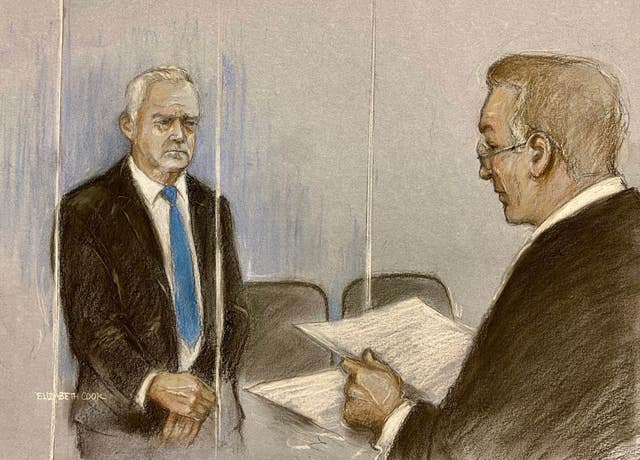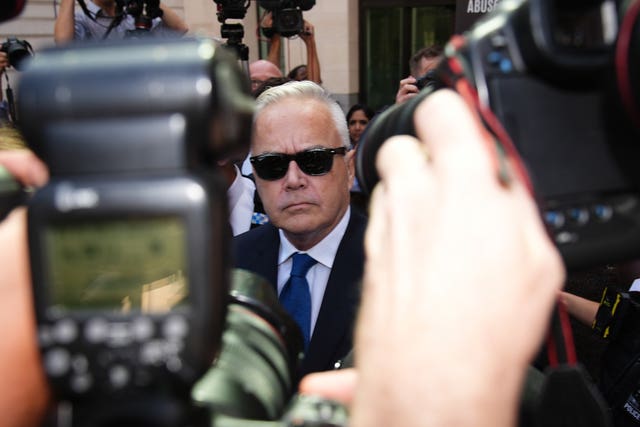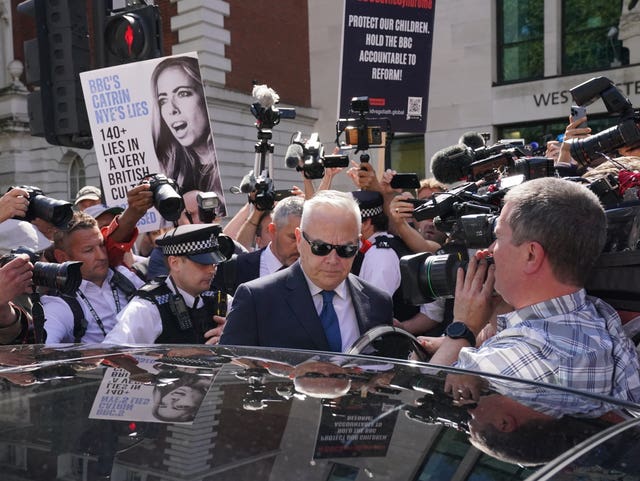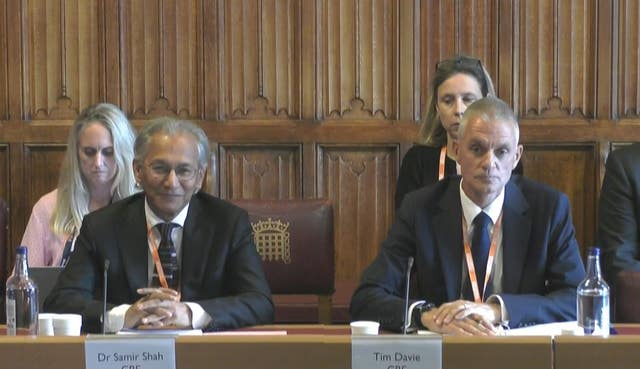Former BBC presenter Huw Edwards is due to be sentenced for accessing indecent images of children as young as seven.
The veteran broadcaster admitted three charges of “making” indecent photographs after he was sent 41 illegal images by convicted paedophile Alex Williams over WhatsApp.
Edwards is on conditional bail and scheduled to be sentenced at Westminster Magistrates’ Court at 10am on Monday, following his guilty pleas in July.
Seven of the indecent images shared with Edwards by Williams were of the most serious type.

Of those images, the estimated age of most of the children was between 13 and 15, but one was aged between seven and nine.
Williams was charged in relation to his WhatsApp chat with Edwards and was convicted of seven offences following an investigation by South Wales Police – receiving a 12-month suspended sentence.
The final indecent image was sent in August 2021, a category A film featuring a young boy, with the convicted paedophile telling the newsreader the child was “quite young looking” and that he had more images which were illegal.
Overall the charges cover a period between December 2020 and August 2021.
Edwards’ case could be sent to crown court for sentencing if the presiding district judge decides they do not have appropriate powers to sentence the broadcaster on Monday.
The BBC has admitted it was informed that the former TV presenter had been arrested in November but continued to employ him for around five months until he left on medical advice.

It has asked Edwards to repay the £200,000 salary he has received since his arrest.
BBC director-general Tim Davie said the money should be returned and that the corporation will “explore” the legal process if Edwards refuses.
Mr Davie and BBC chairman Samir Shah were questioned by the House of Lords Communications and Digital Committee last Wednesday.
Regarding the disgraced presenter’s pay, Mr Davie said: “We’ve made the formal request, and I can’t go into too much detail, but discussions are under way, but I’ve got no further news, apart from the BBC’s position is clear, the money should be returned, and we made the request.”
When asked if he set a deadline, he said: “I don’t believe we set a deadline… but we do expect to make progress and get an answer.”

Mr Shah told the same committee that Edwards had “damaged” the BBC’s reputation.
He said: “There’s nothing more important than public trust in the BBC, and we are custodians of that trust and what Huw Edwards did damaged the reputation and the trust for the BBC so we take that very seriously indeed.
“I should say, it was a shock to discover, when it was announced, when he was charged, that he had led this double life.
“On the face of it, a trusted news presenter, but hidden, secretly, he was this figure who did the most appalling things. I mean, let’s never forget the victims.”
He added that he “knew him”, having overseen current affairs at the BBC decades ago, and said that other staff who worked with him “feel angry and betrayed” by Edwards.

The relevant images range from the most serious category, known as category A, to the least serious, known as Category C.
They include seven category A images, 12 category B images, and 22 category C images.
The Sentencing Council, a public body sponsored by the Ministry Of Justice, defines category A images as those involving penetrative sexual activity, sexual activity with an animal, or sadism.
Category B images are those involving non-penetrative sexual activity, while category C images are indecent images that do not fall into A or B.
According to the Crown Prosecution Service (CPS), “making” an indecent image has been broadly interpreted by the courts.
It can range from opening an attachment to an email containing an image, to accessing pornographic websites in which indecent photographs of children appear by way of an automatic “pop-up” mechanism.

In the case of Edwards, he received the illegal images as part of a WhatsApp conversation.
Speaking in Edwards’ defence, his barrister Philip Evans KC has said that his client had not “created” the images “in the traditional sense of the word”.
The maximum prison sentence for making an indecent image of a child is 10 years.
Sentencing guidelines set the starting point for any jail term for possession of a category A image at 12 months, with a range of 26 weeks to three years.
The starting point is 26 weeks for a category B image, and a community order for category C.
A number of potential defences to the charge exist, including not seeing the images and having no reason to believe that the images were indecent, having a legitimate reason to possess the images, or if the images were unsolicited and not kept for an unreasonable amount of time.

Aggravating features to be taken into account for Edwards include that the images included moving images, and the young age of the child thought to be seven to nine years old in two of the category A images.
Mitigating factors are Edwards’ early guilty plea, his previous good character, his mental health issues, and his remorse.
During his four decades at the corporation, Edwards was among the broadcasting teams leading coverage of historic events including the late Queen’s funeral in 2022 and most recently the coronation of the King in May 2023.
Edwards also announced the late Queen’s death on the BBC in September 2022.




Comments: Our rules
We want our comments to be a lively and valuable part of our community - a place where readers can debate and engage with the most important local issues. The ability to comment on our stories is a privilege, not a right, however, and that privilege may be withdrawn if it is abused or misused.
Please report any comments that break our rules.
Read the rules hereComments are closed on this article